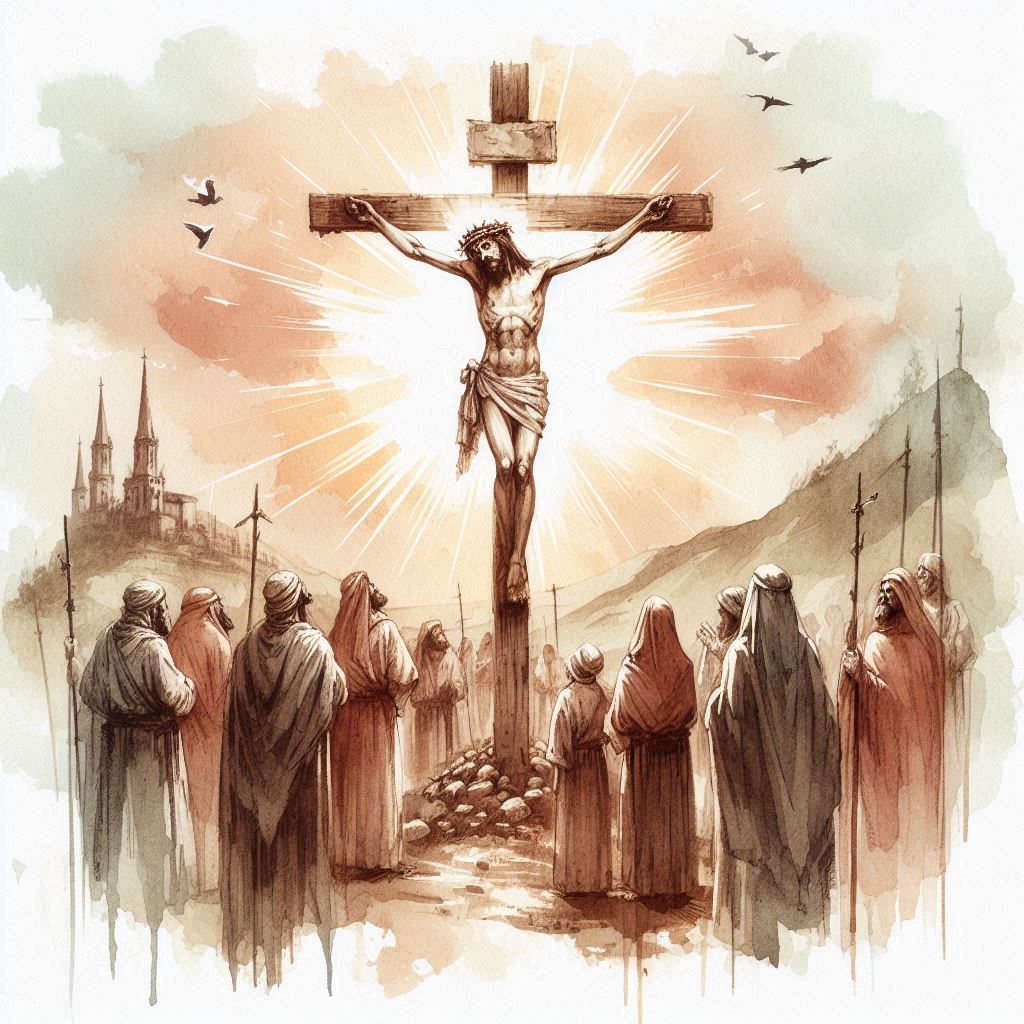7th February, 2026
A Fountain Publication

The Lodestar
Online Magazine for the Thinking Christian

Faith
The Cross: A Balancing Act of Sin and Grace
The cross represents both the gravity of human sin and the immeasurable love of God. It serves as a stark reminder of the consequences of sin and the depth of divine grace, offering a balanced perspective on the Christian faith.
By David Paul on 11th September, 2024
The cross is a profound symbol in Christianity, representing both the severity of human sin and God's boundless love. It is a stark reminder of the cost of sin and the depth of divine grace. Understanding these dual aspects provides a fuller picture of the Christian faith.
The Weight of Sin
The cross illustrates the gravity of sin. In the Bible, sin is not merely a mistake but a fundamental breach in the relationship between humanity and God. The Old Testament highlights the consequences of sin through the sacrificial system, where the blood of animals was required to atone for people’s wrongdoings (Leviticus 17:11). This system underscored that sin incurs a significant debt.
The crucifixion of Jesus, who Christians believe was sinless, magnifies this concept. His death was not just a physical event but a spiritual sacrifice. Jesus’ suffering and ultimate sacrifice on the cross underscore that sin’s penalty is severe—death. Paul writes, “For the wages of sin is death, but the free gift of God is eternal life in Christ Jesus our Lord” (Romans 6:23). The cross is a clear testament to the seriousness with which God views sin.
Examples of Sin’s Severity
The narrative of Adam and Eve in Genesis shows the immediate and profound impact of sin. Their disobedience led to expulsion from Eden, symbolising a broken relationship with God and the introduction of death and suffering into the world (Genesis 3:16-19). This story sets the stage for understanding sin’s pervasive impact on humanity.
King David’s life also provides a poignant example. His adultery with Bathsheba and the subsequent murder of her husband, Uriah, led to personal and national turmoil (2 Samuel 11-12). David’s actions resulted in severe consequences, including the death of his child and ongoing strife within his household. These biblical examples illustrate that sin is not trivial; it disrupts lives and separates people from God.
The Immeasurable Love of God
Contrasting the seriousness of sin is the immeasurable love of God, demonstrated through the cross. The New Testament reveals that God’s love is sacrificial and redemptive. John 3:16 encapsulates this: “For God so loved the world, that he gave his only Son, that whoever believes in him should not perish but have eternal life.” This verse highlights the extent of divine love—willing to endure suffering and death for humanity’s redemption.
The parable of the Prodigal Son also illustrates God’s forgiving love. Despite his reckless living, the father’s unconditional acceptance of his wayward son mirrors God’s readiness to forgive and restore those who repent (Luke 15:11—32). The cross similarly invites believers to receive forgiveness and enter into a renewed relationship with God.
Examples of God’s Love
The apostle Paul, once a persecutor of Christians, experienced a dramatic transformation through Christ’s love. His encounter on the road to Damascus and subsequent ministry exemplify how divine love can redeem even those who seem furthest from grace (Acts 9:1—19). Paul’s life and writings continually emphasise the transformative power of God’s love, stating, “But God shows his love for us in that while we were still sinners, Christ died for us” (Romans 5:8).
Another example is the thief on the cross next to Jesus. In his final moments, he acknowledged his sins and Jesus’ innocence. Jesus’ response, “Truly, I say to you, today you will be with me in paradise” (Luke 23:43), highlights the immediate and unmerited nature of God’s love and forgiveness.
The cross is a dual symbol in Christianity, revealing both the seriousness of sin and God's immeasurable love. Sin, as portrayed in the Bible, brings death and separation from God, yet through the cross, believers witness the depth of divine love willing to redeem and restore. By understanding these dual aspects, Christians gain a deeper appreciation of their faith and the profound significance of the cross.
(David Paul, a devoted church member, passionately ignites aspiring writers' imaginations with his eloquent prose. With sincere dedication, he strives to nurture the creative spark within budding writers, guiding them towards literary excellence and self-expression.)
Share this Article
Advertisements
Explore More on The Lodestar

Christian Minimalism: Embracing Simplicity and Contentment
In a world that urges us to want more, Christian minimalism invites us to want less—making space for what truly matters: deeper faith, contentment, and God-centered living. Discover how simplicity...

Bullying in College: A Christian Response of Prevention, Courage, and Care
Bullying in college wounds deeply, but Christian students can respond differently: preventing harm through Christ-like conduct, addressing injustice with courage, and assisting victims with...
Subscribe to our free weekly digest.
Join hundreds of others who have subscribed to our free weekly digest for inspiring news, faith, community, family, opinion, and culture content. Stay connected and nurture your spiritual growth with thought-provoking articles delivered straight to your inbox.
Join our growing community of readers today.

